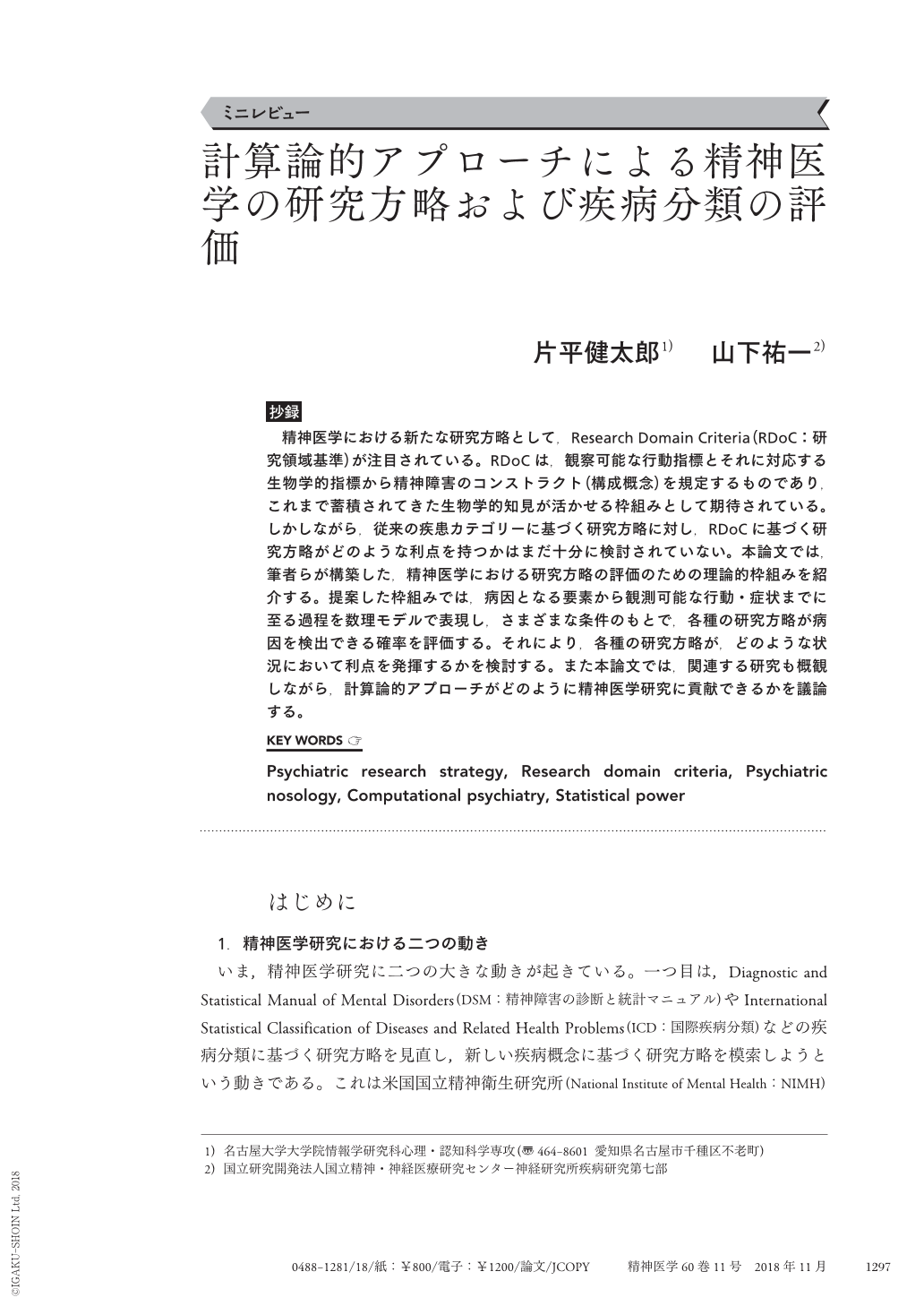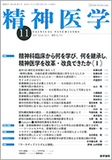Japanese
English
- 有料閲覧
- Abstract 文献概要
- 1ページ目 Look Inside
- 参考文献 Reference
抄録 精神医学における新たな研究方略として,Research Domain Criteria(RDoC:研究領域基準)が注目されている。RDoCは,観察可能な行動指標とそれに対応する生物学的指標から精神障害のコンストラクト(構成概念)を規定するものであり,これまで蓄積されてきた生物学的知見が活かせる枠組みとして期待されている。しかしながら,従来の疾患カテゴリーに基づく研究方略に対し,RDoCに基づく研究方略がどのような利点を持つかはまだ十分に検討されていない。本論文では,筆者らが構築した,精神医学における研究方略の評価のための理論的枠組みを紹介する。提案した枠組みでは,病因となる要素から観測可能な行動・症状までに至る過程を数理モデルで表現し,さまざまな条件のもとで,各種の研究方略が病因を検出できる確率を評価する。それにより,各種の研究方略が,どのような状況において利点を発揮するかを検討する。また本論文では,関連する研究も概観しながら,計算論的アプローチがどのように精神医学研究に貢献できるかを議論する。
In this article, we introduce a computational framework for evaluating psychiatric research strategies(Katahira & Yamashita, 2017). The strategies to be evaluated include a conventional diagnostic category-based approach(based on DSM or ICD)and dimensional approach that have been encouraged by the National Institute for Mental Health(NIMH), outlined as Research Domain Criteria(RDoC). The proposed framework is based on the statistical or computational modeling of the processes by which pathogenetic factors are translated to behavioral measures and how the research strategies can detect potential pathogenetic factors. The framework provides the statistical power for quantifying how efficiently relevant pathogenetic factors are detected under various conditions. We present several theoretical and numerical results highlighting the merits and demerits of the strategies. We also review a related study in which a computational approach to psychiatric nosology is proposed. We discuss how computational approaches contribute to psychiatric research.

Copyright © 2018, Igaku-Shoin Ltd. All rights reserved.


